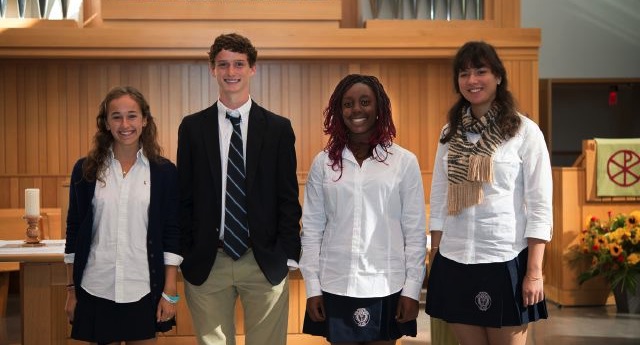
Michael Smerconish ’14, Sean Doyle ’14: As 21 students received awards, 520 patiently sat in the audience, perhaps wondering why we were all at- tending yet another Honors Chapel.
It is illogical to require the entire upper school to miss a class period and chapel when only 4% of the students are being honored. We do not wish to take away from the accomplishments of those who received such recogni- tion, but we do take issue with making the ceremony mandatory for everyone.
Instead of inspiring the student body to excel academically, Honors Chapel is suggesting to the vast majority of the student body that their efforts are somehow inadequate. Even to the students who had felt pride in their hard-earned A’s and B’s, they are now confronted with the harsh reality that perhaps their best was simply insufficient.
In fact, even the awards themselves are delivered in a way that seems to rank some superior to others, a clear example being seen in the build-up to the Harvard and Yale book prizes, which, unlike all the others, were awarded by Dr. Dinkins and Dr. Locke.
Furthermore, the students receiving recognition in Honors chapel are those who will already be rewarded in numerous other ways. The academic rigor and performance that is necessary to receive an accolade should be rewarding in and of itself. Not only has it likely already paid off in a sense of personal accomplishment and the benefits of succeeding in school and extra-curriculars, but it will also pay off in terms of college acceptance, the implied end-game of these numerous awards. Put simply, the school is only making the rich even richer. Episcopal is also clouding the reasoning behind why one should seek academic success. Instead of an innate sense of accomplishment and fulfillment of a personal striving for academic excellence, the school suggests that one should work hard in order to receive public praise.
It is important that we make clear that we see no issue with rewarding academic excellence and hard work, but we fail to see the reasoning for doing it in such a public display. With such a majority of students being left completely out of the picture, it seems reasonable to privately tell the select students of their accomplishments. Perhaps there can even be a private dinner or similar celebration in which those students can formally accept their tangible sources of recognition.
The mandatory special dress also has the unfortunate effect of serving as a long-term reminder of the chapel’s disappointments for many. Every time students enter a class and drop their blazers or come home at the end of the day, they will try to remember the reason for that day’s attire. With that recollection, many will remember the suspense of having the names read out, the moment of hope upon hearing a description similar to them, and, of course, the longer lasting dismay of feeling left out by one’s own community.